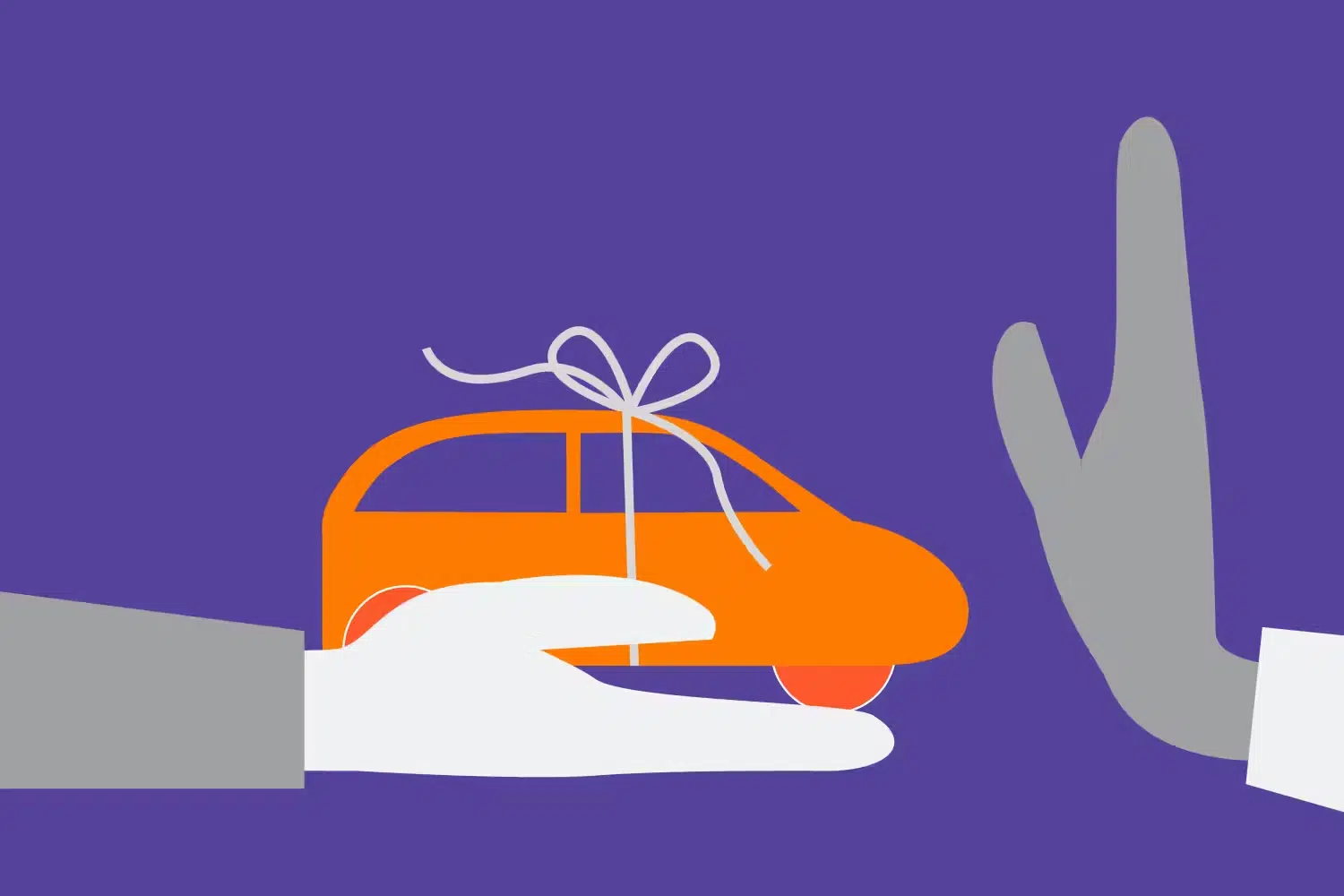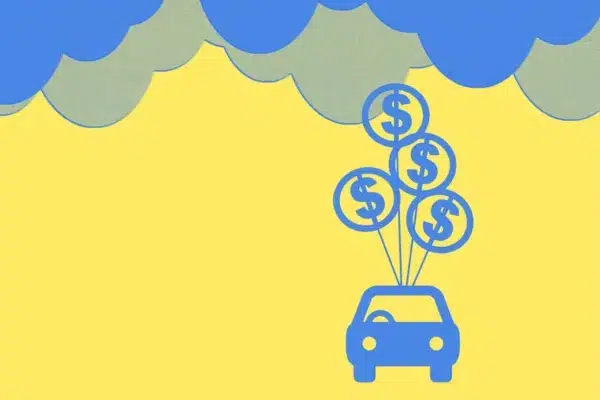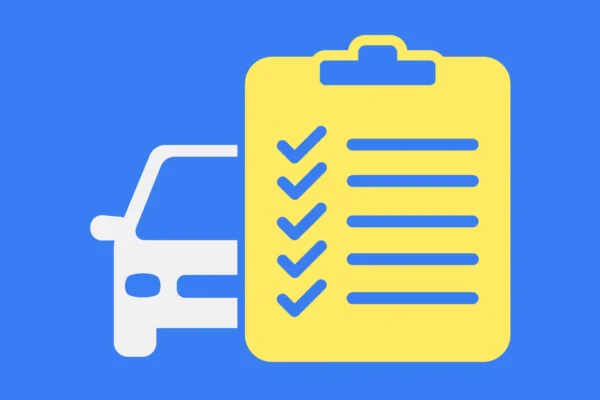
Watch Out for These 6 Auto Scams

COVID-19 has greatly disrupted the car manufacturing supply chain, causing a shortage of new cars. This has pushed consumers towards used cars over the past few months, making the used car market boom and driving used car prices up. In fact, used car prices were up 10.5% in June 2021, and 45.2% over the last 12 months. With this car shortage, and the increased demand for used cars, many buyers are trying to move quickly, or evaluating multiple options for purchasing a used vehicle.
But buyers beware. There are many scammers who are looking to take advantage of prospective buyers in this position. Car buying scams are common, so if you’re in the market for a used car, read on to find out how to avoid common auto scams.
Title Washing
In certain scenarios, like when a car is wrecked and repaired, damaged by a natural disaster, or stolen and recovered, it will be referred to as a salvaged vehicle. The vehicle’s title will reflect this status. Salvage-titled cars tend to be worth less on the used car market for two reasons: these vehicles can have continuing problems stemming from the original damage, and insurance companies typically won’t offer coverage beyond liability on the vehicle.
Title washing is a scam that rids a car of its salvaged status. Shady sellers can remove the salvaged status if they believe that doing so will prove profitable. Used car sellers almost always sell a car “as is”, meaning the buyer takes on all responsibility for the vehicle after its purchase. This means that buyers are stuck with the car and any problems that it has once the sale is complete. This is a scam and it’s illegal. To avoid becoming the victim of title washing, be sure to use a service that can give you a report on the VIN (vehicle identification number) history. There are many services that can provide VIN checks—some are free, like The National Insurance Crime Bureau, but there are also paid services, like CarFax. When you use one of these services, make sure they’re reputable before paying for any report.
Fake Escrow Account
Escrow accounts are used to hold funds until a vehicle is delivered to its new owner. Many scammers will lure buyers into this fake escrow account scam by advertising a car for sale on a website like Craigslist. The car listed is usually highly desirable with a low advertised price that seems too good to be true. The seller may provide reasons for this unusually low price, such as hardship or being located abroad, in order to strike a deal. If the price seems too good to be true it probably is. If you’re asked to deposit funds into an escrow account to secure a deal—without seeing the car first–you should walk away. Ensure that the seller is using an established and verified online escrow service that is approved by both parties to avoid becoming a victim to this scam.
Wire Transfer Scam
Fraudulent sellers often ask for money for a car to be exchanged through wire transfer. The reason scammers request a wire transfer is because these payments are hard to trace without having received a vehicle, making it harder for the buyer to recover money if the deal turns out to be a scam. The best way to steer clear of a wire transfer scam is to avoid paying for a car if you don’t yet have it in your possession. Scammers will provide excuses as to why they can’t give you the vehicle until you wire them the money. Don’t fall for this—reputable sellers will never ask you pay via wire transfer.
Sympathy Scams
With this type of scam, a thief will pose as a seller and tell a potential buyer a story about why he or she needs to sell the car immediately and at a steep discount. They may tell you that they are going through a divorce, that they were called for military deployment, or that the owner of the car passed away. These scammers create urgency by demanding that you pay for the car up front, or else risk losing out on the deal. Once that upfront payment is made, the seller disappears, and you lose that money for good.
The best way to avoid this type of scam is to use common sense. If the price is well below the market value and the deal seems too good to be true, it most likely is. If you’ve never met the seller and they ask for payment in advance, you should walk away.
Gift Card Scams
A common scam targeting car buyers is requesting gift cards as a form of payment. In this scam, you are instructed to call a fake toll-free number, one that is very difficult to trace. The scammer then instructs you to buy gift cards that total up to the sale price and turn the codes over to them. As a general rule of thumb, you should always avoid paying with a currency that can’t be traced. This applies not only to gift cards but also to digital currency or platforms. With a bank or credit card, you have an extra layer of security. With other less secure platforms, you open yourself up to losing your entire payment to scammers. If you’re ever asked to pay anything with gift cards, remember this: there are many ways to exchange money. Why would a legitimate seller rely on inconvenient gift cards for payment when they could use any number of more convenient payment services?
Curbstoning
Curbstoning is a practice that involves luring prospective car buyers to spaces not associated with businesses, like a parking lot or the curbside of a road. The goal of these scammers is to sell salvaged cars to buyers who think they are getting a good deal. They dress up the cars cosmetically to conceal dangerous flaws, such as a missing airbag, that would prevent them from selling their car on the open market. These cars are typically sold without holding the required license or permits, leaving the buyer without the title or other critical paperwork needed.
Curbstoners typically advertise their cars on online sites like Craigslist or by placing for-sale signs on parked cars. Before doing anything, you should do an online search of the phone number that is listed to see if the seller has posted other vehicle sale ads. If they have, you’re most likely being faced with the work of a curbstoner.
Buying a used car off of listing sites like Craigslist can seem intimidating, but there are a lot of legitimate people trying to sell or buy cars on classified advertising sites—especially vintage cars or specialty vehicles. If you’re not familiar with cars or buying used vehicles, it’s best to approach these sites with caution. And remember: whenever you’re buying through a classified ad, a VIN check is highly recommended.
Don’t Be Used When Buying Used
If you find yourself in a bind due to the car shortage and are looking to purchase a used car quickly, be on the lookout for these common auto scams. There are many scammers out there looking to take advantage of your situation. By being smart and diligent, you can avoid these scams and get a used car from a reputable seller that you can enjoy for years to come.
Find Your Next Auto Loan
Talk to Amplify’s consumer lending team and learn how you can save money on your auto loan.



